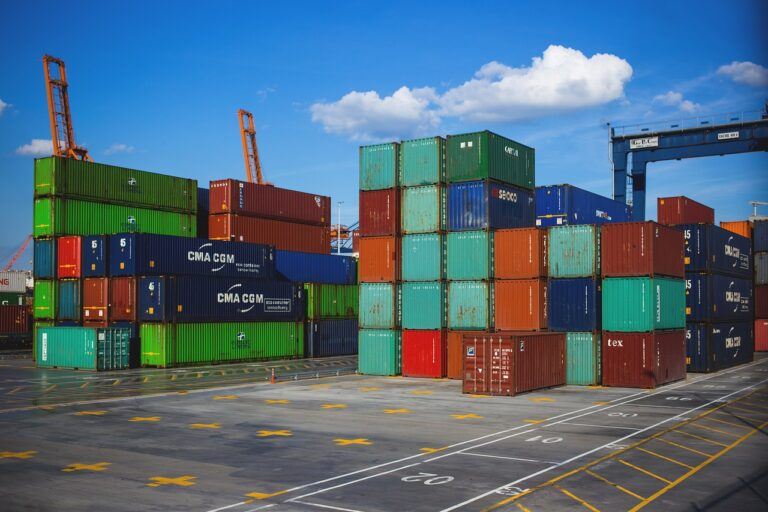Shipping giant Maersk has been working with tech giant IBM on a previously unnamed collaboration, developing a blockchain-based shipping solution. Said collaboration now has over 90 participants, and has been named TradeLens.
According to Forbes, the platform has been quietly “orchestrating global trade with less reliance on middlemen for a year,” and has so far tracked 154 million shipping events across over 300 locations throughout the world. These include ports, cargo shippers, logistics companies, and more.
Collectively the shipping companies involved in the collaboration represent more than 20% of the global supply chain market share, Forbes claims. TradeLens is now leaving its Beta phase into limited availability, and launching a new custom smart contract service that’ll help participants execute shipping orders while cutting down the number of middlemen.
Marie Wieck, general manager and head of blockchain at IBM, was quoted as saying:
We have seen a lot of skeptics talk about the validity of blockchain solutions. And I think with over 90 organizations and over 150 million events captured on the system we really are seeing proof in the pudding in terms of where people are spending their time to get benefits from blockchain.
TradeLens’ advantages, as TechCrunch describes, are based on its three components. The blockchain component gives companies a mechanism they can use to track goods out for delivery, while its APIs let developers build on top of TradeLens and further improve efficiency. The third component, a set of standards used to facilitate data sharing, is set to improve workflow.
Thanks to the use of blockchain technology, TradeLens secures data with digital encryption built in, while improving transparency. Network participants using it are able to check a block on the blockchain to track a process, instead of requesting data from a middleman. The system, as Wieck noted, doesn’t eliminate fraud, although it helps fight it.
She said:
If you had fraudulent data at start, blockchain won’t help prevent that. What it does help with is that you have multiple people validating every data set and you get greater visibility when something doesn’t look right.
Using TradeLens’ advantages, Wieck claimed users can save as much as 40% on shipping. To generate the data they need, both IBM and Maersk are running a node on their blockchain, which uses HyperLedger Fabric.
Blockchain-Related Services
While the bitcoin and ethereum blockchains, for example, are public, TradeLens is set to charge participants for access to its distributed ledger. Per Forbes the price for access isn’t yet set, but the smart contract service that’s set to help participants, dubbed ClearWay, will be priced separately.
Notably Big Four accounting firm Deloitte has earlier this year revealed it was raising $100 million to launch a supply chain platform that would use the ethereum blockchain, in a move that’s set to help reduce freight rates.
Tech giant Microsoft has, as CryptoGlobe covered, launched a Proof-of-Authority (PoA) algorithm for Ethereum on Azure that’s set to improve its Blockchain-as-a-Service (BaaS) offering on its cloud computing service.
Blockchain-related developments have been stacking up, as Ukraine’s election body used the NEM blockchain in a voting trial that found it would cost $1,227 to implement a node in every police station in the country. Recently, Turkey launched its first blockchain research and innovation center.









